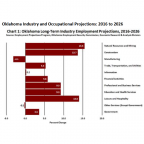Will Your Good Looks Help You Advance?

There is a long-standing belief that better-looking employees get better treatment in most work environments, from the hiring process to employee evaluations and promotions. This article from author K. Ong examines some of the research into this subject.
Beating the Stereotype That Links Physical
|
What do you think? Have you witnessed or experienced any obvious bias (negative or positive) based upon someone's looks in the workplace or academic setting? Please leave your comments below.
Careers for Multilingual Professionals

Professionals who can speak, write and understand another language or several languages fluently, are more in demand today than ever before. The global economy and multiethnic populations in many countries are creating an increasing need for those who are able to communicate proficiently in other languages. The career outlook for people who are bilingual or multilingual is excellent.
According to the Occupational Outlook Handbook issued by the United States Bureau of Labor Statistics, the profession of Interpreter was projected to grow by 42 percent between 2010 and 2020. Other occupations requiring the working knowledge of another language are expected to see future growth as well.
The Best Careers for Multilinguals
Individuals who are multilingual find that they are able to earn up to 20 percent more than those who speak one language, especially when language skills are used extensively in their occupation. People who earn professional certifications showing mastery of other languages can earn considerably more. Multilingual professionals work in a variety of interesting occupations. A small sampling of these are:
- Bilingual Translators And Interpreters
- Bilingual Human Resources Professionals
- Marketing Directors
- Medical Professionals – Including Nurses, Physicians, Physician Assistants and office staff
- Journalists
- Teachers and Language Teachers
- Ambassadors, Diplomats and staff
Being Proficient in Other Languages Opens Career Doors
English is the primary language of many countries, but being bilingual in the world today opens up many new and exciting career opportunities. Those who can successfully use two or more languages find that interesting career opportunities are just the beginning. People who can communicate in other languages find that their potential to have a positive influence on companies and on people all over the world is the most rewarding aspect of being bilingual or multilingual.
Some of the most popular languages that people become proficient in include Spanish, German, Dutch, Portuguese, Chinese, Korean, Japanese, Russian, Burmese, Arabic and Afrikaans. Once a person is able to speak fluently, write fluently and completely understand another language, they also find that they have a valuable, additional skill that can give them a competitive edge over other job applicants.
Consider the Job Expectations
Those who speak other languages fluently need to think about whether the expectations of jobs that demand their unique skill fit their personality. People who love to be in groups, enjoy sharing knowledge and who are able to excel at public speaking tend do well as teachers or as language teachers. Those who excel in writing their chosen language and who love to work independently can do well in settings as a written translator.
Professionals who enjoy working in small groups and who love variety and challenges in their work surroundings may find they enjoy working as an interpreter. Government jobs as diplomats and as ambassadors are fascinating and offer excellent job satisfaction for those who thrive while working in challenging settings.
Many Careers to Choose From
Bilingual and multilingual professionals find that more careers are open to them today, due to the constantly changing global business atmosphere. Jobs can now be found in management, manufacturing, web design and web businesses, administrative positions, hospitality industry careers, legal professions non-profit agency careers and child care, along with more traditional multilingual careers in translating, interpretation and teaching.
With so many new and exciting opportunities for those who are fluent in other languages, many are finding that it pays to learn another language when possible. Being able to work in an exciting career field that is very much in demand is one of the best benefits of being bilingual in a global economy. Many countries today have populations that speak more than one language. Learning another language and becoming proficient in that language can pay off in many ways.
Careers in Medical Coding

A medical coding career is for those interested in health care, who are aspiring to a more profitable and higher job position in the area of medical office management. Such individuals can start by becoming a medical coder to progress toward these goals. Moreover, the demands for this profession continues to increase, which means there are greater chances to secure advancement and maximize earning potential over time.
Duties and Responsibilities of a Medical Coder
Medical coders are in charge of coding healthcare claims of patients, which is important in receiving reimbursement from various government health care programs or insurance firms. These professionals work in a medical facility such as the physician's office or hospitals. They also use software programs that allow them to assign diagnosis codes required for insurance billing.
In addition to these tasks, coders are expected to make a thorough review of the claims data. This way, they can be certain that the assigned codes comply with the insurance and legal guidelines. Coders also make sure that authorizations and signatures required for the processing of claims are in place before they submit these documents.
In case of incorrect coding, the claim may be denied upon submission. When this happens, medical coding specialists will conduct further medical records research. Then, the medical billing specialists will communicate with healthcare professionals and insurance firms until the issue is resolved.
Medical Coder vs. Medical Billers
It is common for some people to assume that medical coders and billers have the same job description. However, these are two different professions with their own set of duties and responsibilities. For instance, medical coding specialists also use the Current Procedural Terminology or CPT when they assign codes to the procedure obtained by each patient. They also determine the diagnosis codes after consulting the International Classification of Diseases. By doing so, they can provide an accurate label of the doctor's diagnosis to ensure the accuracy of the assigned codes.
On the other hand, medical billers are tasked to enter the codes into the billing software to ensure the processing of insurance claims. Hence, they should be also be familiar with the ICD-9-CM, HCPCS Level II and CPT codes to enter the data correctly.
Since medical billers deal with insurance firms, they should have a thorough understanding of the claims process. Before they hand the insurance claims for processing, they need to review carefully the proper billing format and make sure that all fields are filled out correctly. All the required documents should also be submitted before filing the claims.
Billers are also responsible for explaining to the patient any co-payments, coinsurance or deductibles required by the insurer. They will also have to make follow-ups with insurance companies and patients to make sure that the claims have been settled. Lastly, medical billers should check with insurance firms and see to it that doctors are paid for the services they have provided.
Medical coders and billers work together to obtain accurate information and correct documentation necessary for the filing of healthcare claims. Overall, these two professions are critical to the cash flow of healthcare providers. These jobs may be handled by one individual or two people, depending on the size of the facility where they work.
Educational Requirements
Those who aspire to become a medical coder should complete a program that would entitle them to obtain an associate's degree in health information technology or medical coding, as well as other relevant fields. The study program includes classes in basic and advanced levels in ICD-9-CM coding, computer data entry, medical law, physiology, anatomy and medical terminology. Other recommended courses for medical coding specialists include the Current Procedural Terminology, healthcare reimbursement and coding methods and the Healthcare Common Procedure Coding Systems.
Medical Coding Certification
The Certified professional Coder or CPC and the Certified Coding Specialist or CCS credentials are the primary certifications provided to medical coding specialists. The American Academy of Professional Coders (AAPC) offers the CPC credentials while the American Health Information Management Association (AHIMA) provides the CCS certification. It is important to pass at least one of these examinations to obtain a certification required in the medical coding career. Both of these tests will determine an applicant's knowledge in a wide range of subjects including ICD-9-CM, ICD-10-CM, medical terminology, evaluation and management, medicine, pathology, anesthesia, anatomy and radiology.
For those who have minimal training or experience in the medical coding industry, the Certified Coding Associate or CCA and Certified Coder-Apprentice or CPC-A are suitable designation certifications. The CPC is awarded to successful candidates who pass the test and have a minimum of one year work experience in the field. As for the CPC-A, this is given to candidates who pass the exam, yet they do not have any formal training or previous work experience.
The AHIMA also offers a certification exam for aspiring medical coding specialists. This exam is called the CCS-P, yet this is more challenging than the CPC because of the varied test format such as multiple select, fill in the blanks and multiple choice.
Career Advancement
To further advance in your career, you may obtain certification from the AAPC. Be sure to meet certain certification requirements including your current membership to the AAPC, at least two years of professional experience as a medical coding specialist and a test score of 70 percent or higher in the CPC exam. Additionally CPCs who wish to apply for re-certification must maintain their AAPC annual membership, and they need to undertake further studies to submit 36 education units every two years.
Job Outlook for Medical Coders
According to the Bureau of Labor Statistics, there is a 22 percent increase in job demands for medical coders from 2012 to 2022. Considering the increased aging population throughout the world and the computerization of medical files in healthcare facilities, it is expected that more jobs will be made available to medical coding specialists.
However, those who plan to pursue this career should hold at least one certification to qualify for the job. Thus, taking relevant courses and successfully passing the credential examinations can provide a more promising career opportunity for medical coders.









